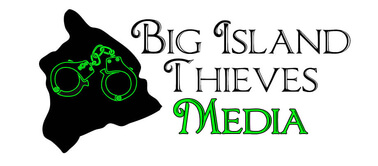Hilo, HI – The Hawaiʻi Supreme Court will hold a special session at the University of Hawaiʻi at Hilo Performing Arts Center on Thursday, April 17, 2025, from 10:00 AM to 11:00 AM. This event, part of the Judiciary’s “Courts in the Community” program, aims to bring the judicial process directly to the people and offer students a firsthand understanding of the courts’ role in a democratic society.
Chief Justice Mark E. Recktenwald and Associate Justices Sabrina S. McKenna, Todd W. Eddins, Lisa M. Ginoza, and Vladimir P. Devens will preside over the oral argument in the case of State of Hawaiʻi v. Charles Zuffante. William Heflin, President of the Hawaiʻi County Bar Association, will serve as the moderator for the event.
Approximately 275 students from five local high schools will be in attendance, providing a unique civics education opportunity. The participating schools include Hilo High School, Waiākea High School, Hawaiʻi Academy of Arts and Science Public Charter School, Connections Public Charter School, and Laupāhoehoe Community Public Charter School.
The “Courts in the Community” program is designed to highlight how the judiciary resolves disputes under the rule of law. By bringing the Supreme Court to Hilo, the Judiciary hopes to engage students and the community in a meaningful dialogue about the importance of the legal system.
The doors to the University of Hawaiʻi at Hilo Performing Arts Center will open to the public at 9:30 AM. The Judiciary Communication and Community Affairs Office will provide photos and video to interested media outlets.
Media representatives wishing to film or photograph the argument must file an Application for Extended Coverage with the Supreme Court’s Office of the Chief Clerk. The requirement for pooled coverage will be waived for this case, allowing individual media outlets to film. However, photographing or filming the faces of students in the audience will be prohibited.
Following the oral argument, Chief Justice Recktenwald and selected students will be available for on-camera interviews.
State of Hawaiʻi v. Charles Zuffante
Attorney for Petitioner/Defendant-Appellant CHARLES ZUFFANTE:
Georgette Anne Yaindl of the Law Office of Georgette A. Yaindl
Attorney for Respondent/Plaintiff-Appellee STATE OF HAWAI‘I:
Frederick M. Macapinlac, Deputy Prosecuting Attorney
NOTE: Order accepting Application for Writ of Certiorari, filed 02/05/25.
COURT: Recktenwald, C.J., McKenna, Eddins, Ginoza, and Devens, JJ.
This case arises from a traffic stop in Kona, Hawaiʻi. An officer conducted a pat down of Petitioner Charles Zuffante and found a packet of crystal methamphetamine in his pocket. Police later found more methamphetamine in the vehicle.
Following Zuffante’s arrest, a Hawaiʻi Police Department officer questioned Zuffante at the police station. At trial, the officer testified that Zuffante voluntarily waived his Miranda rights and made statements to him, including that Zuffante sells crystal methamphetamine.
A jury found Zuffante guilty of Attempted Promotion of a Dangerous Drug in the First Degree in violation of Hawaiʻi Revised Statutes §§ 712-1241(1)(b)(ii) and 705-500. The Circuit Court of the Third Circuit sentenced him to twenty years imprisonment.
Zuffante appealed to the Intermediate Court of Appeals (ICA), arguing that his statements to the officer were not voluntary. He argued the Circuit Court erred by admitting the officer’s testimony, because Zuffante’s statement was not electronically recorded. Zuffante asserted that, under the Hawaiʻi Constitution, Hawaiʻi should adopt the “Stephan Rule” from Stephan v. State, 711 P.2d 1156 (Alaska 1985), which requires under the due process clause of the Alaska Constitution that police record criminal interrogations conducted at a police station. Zuffante argued that without the officer’s testimony about Zuffante’s statements, the State did not present substantial evidence to support his conviction. Zuffante also claimed his counsel was ineffective for not challenging the officer’s testimony. The ICA affirmed the Circuit Court.
Zuffante’s application for certiorari to this court was granted. He argues the ICA gravely erred by (1) affirming the Circuit Court’s admission of the officer’s testimony; (2) finding there was substantial evidence to sustain Zuffante’s conviction; and (3) not addressing Zuffante’s ineffective assistance claim. Zuffante argues the supreme court should overrule State v. Kekona, 77 Hawaiʻi 403 (1994), where the court directly rejected the “Stephan Rule,” and instead require that police record custodial interrogations.



